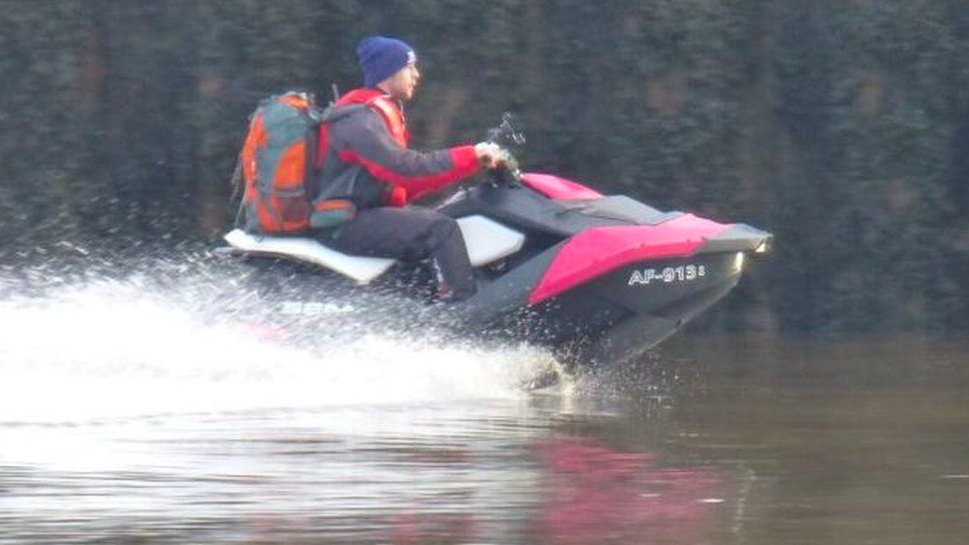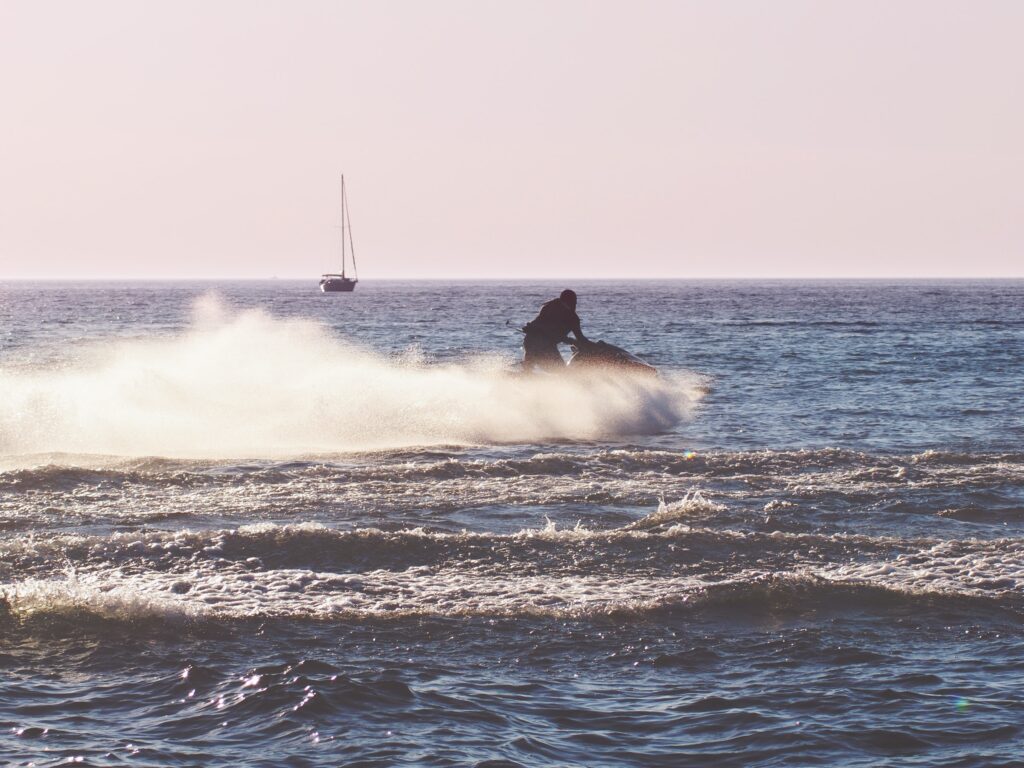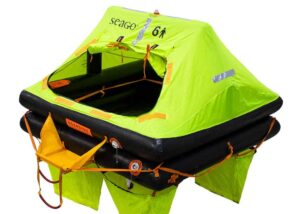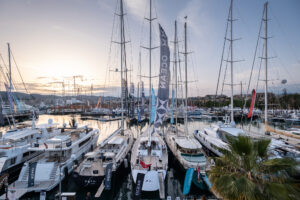In Focus: New jet ski safety regs robustly welcomed

In January 2023, MIN reported that the UK was introducing new legislation to crack down on the dangerous misuse of watercraft such as jet skis. With the new legislation now in force, the responsibility is now firmly on users, operators and owners of powered watercraft to make sure they protect not just themselves but other water users from harm.
If someone on a powered watercraft causes serious injury or death they can be prosecuted, says the Maritime and Coastguard Agency (MCA). There are also provisions allowing prosecution for other dangerous uses of a powered watercraft.
“They will be held accountable by the same laws that apply to ships and fishing vessels in order to help prevent accidents,” says Neil Cunningham, the MCA’s head of regulatory compliance investigations. “Users, operators and owners of jet skis and other watercraft should make sure they are fully aware of their responsibilities under the legislation, before operating them. The MCA has powers to prosecute those responsible for serious breaches of the legislation and perpetrators could find themselves facing a fine and/or up to two years in prison.”

“Responsible riders welcome the move,” says Andrew Norton, director of the Personal Watercraft Partnership. He says that the legislation, although “just a tidy up” will “definitely make a difference. Any prosecution will be widely publicised and as such should deter the less responsible riders.”
But, Norton says, “as with any law the challenge will be catching people, it will take a multi-agency response i.e harbour masters, local councils, police etc… however we need to remember that the majority of PWC users are responsible, it is the few who spoil it for others.
“We also have to remember that harbour masters and councils have always had the power under their bylaws to prosecute anyone breaking them. They do prosecute and win and the fines are not insignificant. The new legislation now brings powered watercraft within the law outside of their limits.”
The Merchant Shipping (Watercraft) Order 2023, the new legislation, is designed to bring vessels other than ships and fishing vessels within the reach of a number of critical, primarily safety-related pieces of maritime law. It applies existing provisions and offences in the Merchant Shipping Act 1995 to powered watercraft (those which have an engine or motor installed). It’s been introduced following an appeal court case in 2005. In that case, the court found that provisions of the Merchant Shipping Act 1995 referring to ‘ships’ did not refer to recreational craft such as a jet ski, because they were not ‘vessels used in navigation’. Effectively the new legislation restores the legal position – as it was thought it to be – prior to the appeal court’s judgment. And, critically covers PWC, powerboats and RIBS, tenders and sailing dinghies which are fitted with or carry a motor.
Stuart Carruthers, RYA cruising manager, says the RYA supported the government’s wish to rectify the discrepancy from 2005. He says that the RYA believed that the legal uncertainty limiting the ability of enforcement authorities to deal with the dangerous actions was not in the interests of the recreational boating community and, accordingly, the organisation supported the government’s aims.
But, he says, “We [the RYA] believe that in some parts the order could have been extended applied to non-powered craft such as the ability to register voluntarily on the UK Ship register, the need to register EPIRBS if carried and the need to follow COLREG.”
The RNLI‘s Guy Addington, regional water safety lead for south east England, says that “the RNLI is supportive of any positive changes that improve safety around the coast.”
But while the new rules are welcomed, water users are cautious about their implementation.
“Is this just another set of rules, underfunded & understaffed, and unaffordable, the popular word of government?” asks one MIN reader.
Another asks: “Will local MCA and Harbour Master have the resources to monitor compliance?” Resource is a common concern. “It’s all very well having the rules, but without the people to enforce those rules and by that I mean not some Whitehall clerk sitting in Westminster, but officers on the river (like the USA have dedicated river officers who carry out those rules), it will be just another underfunded understaffed undervalued scheme that will be words only,” says a third.
In some cases, like the one below, public filming of infringements can lead to action being taken.
If you come to Wivenhoe and deliberately disturb migratory shorebirds critically low on body fat and in autumn moult, then some of them are going to die. I am NOT going to let you get away with that. @EPMarine pic.twitter.com/x9Jllm4ZOh
— Glyn Evans (@Evansthegrump) July 26, 2020
Cross-industry forum
Back in 2020 the Marine Accident Investigation Branch‘s (MAIB) chief inspector of marine accidents, Andrew Moll, called for the formal creation of a cross-industry forum “to provide a more consistent approach to the management of personal watercraft around the UK.”
This followed the MAIB’s report into the collision between the rigid inflatable boat Rib Tickler and a personal watercraft (August 2020), an accident that caused the loss of one life.
“As the use of leisure craft in the UK becomes ever more popular, this tragic accident serves as a powerful reminder that uncoordinated, high-speed manoeuvres near other craft are unsafe,” Moll said.
“Personal watercraft, often referred to as jet skis, provide a unique and fun way to enjoy the water, but they are high performance machines, not toys. The completion of an appropriate training course will better equip the rider with skills and knowledge necessary for the safe use of a personal watercraft.
“Although there are many harbour and local authorities that manage their waters to provide safe areas for all water users, there is an inconsistency of management around the UK coast, which can lead to conflicted interests and confusion.”
MIN has asked MAIB to comment on the forum, but has yet to receive a response.
What followed the call for a forum was the summer of covid when UK beaches – and all activities associated with them – became incredibly popular as the UK’s population was busily staycationing.
Warning after jet ski accidents
Within a couple of months of Moll’s decree, HM Coastguard had to warn people of the dangers of jet skis, personal watercraft (PWC) and motorised recreational craft after a spate of incidents around the south west coast in July 2020.
The incidents also included jet skis and motor boats overturning in the water, getting too close to other vessels, collisions and conflict between users of these craft, and other sea users, such as swimmers.
“The majority of PWC and motor craft users operate their vessels responsibly but there are some who don’t respect the water, the capabilities of their vessels and other water users,” Richy Williams, senior coastal operations officer said at the time.
“This is a long-standing issue with ports and harbours,” Martin Willis, executive officer, UK Harbour Masters’ Association said in 2020. “Enforcement has proven to be difficult. Less responsible individuals can get hold of jet skis cheaply and often show little respect for other harbour users.
“Top-end jet skis are quite responsive, but basic kneel-ons are hard to control. People buy them cheaply, it’s an ongoing problem,” said Willis.
And with thousands of search results on eBay for jet skis, it’s clear they’re easy to get hold of; older models go for as little as a couple of hundred pounds – and still do.
All personal watercraft manufacturers who were approached for this story declined to comment on the new legislation.
Main image is man who rode for four hours on a jet ski from Scotland to see his girlfriend on the Isle of Man, and was subsequently jailed for breaking covid rules.










